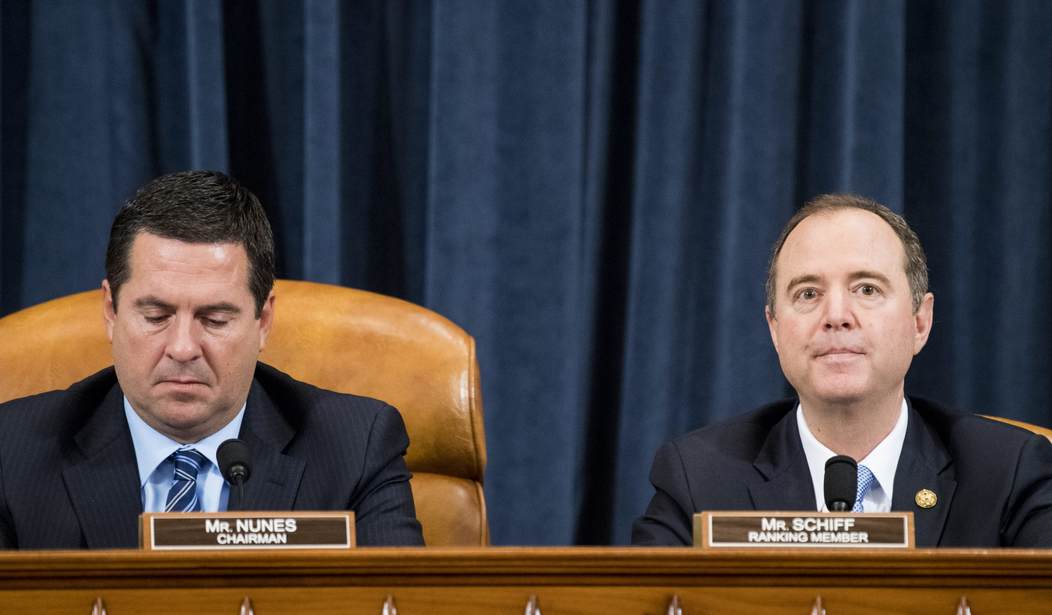I have no doubt that some theatrical director specializing in the work of Samuel Beckett has been eying the investigation of Robert Mueller with envy. After all, what the nation calls “Waiting for Mueller” has been running nearly two years and, just as in the famous Beckett absurdity, the title character never shows up. We’re told that may be coming to an end, that finally, at last, Mueller really will deliver the goods, as soon as next week, CNN reported. But then it was CNN that reported it, so of course it turned out not to be true but just another installment of its fake news machine. Still, soon, soon, he’ll be wrapping up “soon,” just as he was last spring, this past summer, and all through the fall. He’s shedding lawyers, he’s wrapping up, he’ll be done … soon.
Well, sooner or later, he will be done soon, and then he really will be done. Maybe Donald Trump will have served out the whole of his first term by then, or maybe he will just be entering the 2020 election cycle when Mueller and his team of Clinton-Obama prosecutors turn off the lights and slide their report over the transom to Attorney General William Barr. We just don’t know.
But here’s something we do know. While the nation’s eyes have been riveted on the Mueller Russian Collusion investigation, its father, the Clinton Email investigation, has been quietly swept under the rug, pushed into the oubliette, stricken from the public’s consciousness.
In part it is a function of rhetoric. “Russian Collusion” sounds serious, especially since the Great Russian Reset, supposedly delivered by Secretary of State Hillary Clinton, has itself been reset and we are now watching reruns of McCarthy-era Red Menace movies. “What if Donald Trump is Putin’s stooge/puppet/poodle/mole/Manchurian candidate?” That’s the sort of question Mad Max Boot asks everyday before breakfast, even though the president in 2016, when the alleged Russian Collusion was taking place, was B. Obama, the director of the CIA was the Gus Hall-voting John Brennan, and the director of National Intelligence was James Clapper.
But if “Russian Collusion” sounds, or at least can be made to sound, scary, “email server” is, let’s face it, boring. Try it out on your friends: “Hillary Clinton used Gmail to send and receive emails.” “Yeah, so let’s say she did. What’s the big deal?” The dog won’t hunt.
In fact, though, it is a very big deal, so big that the Department of Justice itself, beginning with then-Attorney General Loretta Lynch, made the decision that Clinton was not to be prosecuted unless and until an unavoidable case against her was staring them all in the face. So she ran a private, unsecured server from her home. So there were tons of classified and at least a couple dozen top secret documents passing through that cyber highway. Did she intend to compromise national security by acting cavalierly with her government’s secrets?
As was pointed out exhaustively at the time, “gross negligence” does not require intent to be actionable — that’s part of what makes the negligence gross: you don’t have to intend to do it, you just don’t take required precautions. The Confiteor covers this under the category of a peccatum omissione as distinct from a peccatum opere.
A lot of legal cogitation, not to mention political calculation, went into devising a strategy to keep Hillary Clinton off that hook, and the people doing the cogitating and calculating were in the Department of Justice. “Make intent central, even though negligence does not require intent, and you are scot-free.” That was the gambit. And it was that calculation that led those advising now-disgraced former FBI James Comey to strike the phrase “gross negligence” and insert “extremely careless” in its stead. Thus when, on July 5, 2016, Comey issued his famous declaration of nolle posequi, he could actually say, with a straight face, that “our judgment is that no reasonable prosecutor would bring such a case.”









Join the conversation as a VIP Member